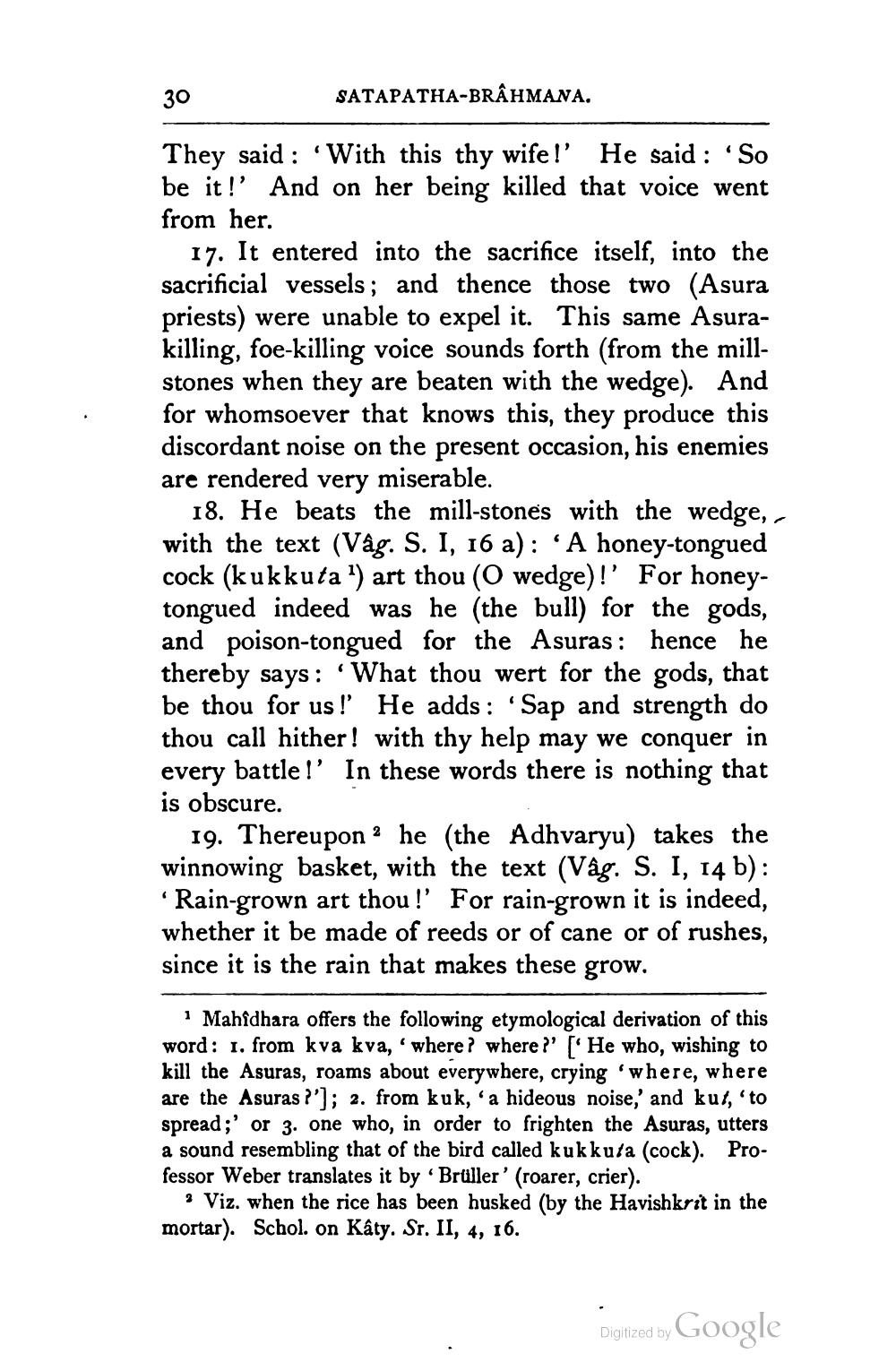________________
30
SATAPATHA-BRAHMANA.
They said: 'With this thy wife!' He said: 'So be it!' And on her being killed that voice went from her.
17. It entered into the sacrifice itself, into the sacrificial vessels; and thence those two (Asura priests) were unable to expel it. This same Asurakilling, foe-killing voice sounds forth (from the millstones when they are beaten with the wedge). And for whomsoever that knows this, they produce this discordant noise on the present occasion, his enemies are rendered very miserable.
18. He beats the mill-stones with the wedge, with the text (Vâg. S. I, 16 a): 'A honey-tongued cock (kukkuta 1) art thou (O wedge)!' For honeytongued indeed was he (the bull) for the gods, and poison-tongued for the Asuras: hence he thereby says: 'What thou wert for the gods, that be thou for us!' He adds: 'Sap and strength do thou call hither! with thy help may we conquer in every battle!' In these words there is nothing that is obscure.
2
19. Thereupon he (the Adhvaryu) takes the winnowing basket, with the text (Vâg. S. I, 14 b): 'Rain-grown art thou!' For rain-grown it is indeed, whether it be made of reeds or of cane or of rushes, since it is the rain that makes these grow.
1 Mahîdhara offers the following etymological derivation of this word: 1. from kva kva, 'where? where?' ['He who, wishing to kill the Asuras, roams about everywhere, crying 'where, where are the Asuras?']; 2. from kuk, 'a hideous noise,' and kut, 'to spread;' or 3. one who, in order to frighten the Asuras, utters a sound resembling that of the bird called kukkuta (cock). Professor Weber translates it by 'Brüller' (roarer, crier).
2 Viz. when the rice has been husked (by the Havishkrit in the mortar). Schol. on Kâty. Sr. II, 4, 16.
Digitized by
-
Google




